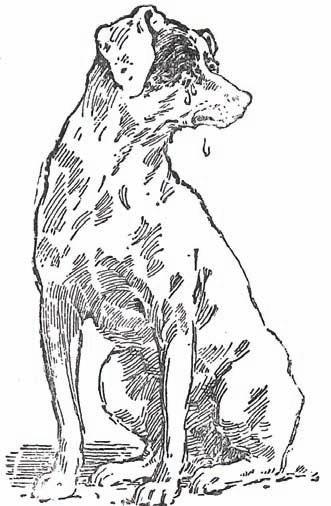
3 minute read
Three Men in a Boat, Jerome K. Jerome
Death and taxes may have been good bets when Benjamin Franklin aphorised them as the only certainties in life, but now soap shops offer Immortality Balm for thirty quid and the international rich are beyond the reach of the revenue. How many certainties remain? Here’s one: Jerome K. Jerome’s novel Three Men in a Boat (to say nothing of the dog), first published in 1889, will always make me laugh and remind me that humans are essentially beautiful and good.
So many copies of Three Men were sold in the years after its first publication that the publisher told the author that the readers must be eating them. Its comic account of the narrator, who is a writer based on the author (J.), George (a banker), the dog Montmorency and Harris (a gentlemantough), undertaking a return trip up the Thames from Kingston to Oxford in a rowing boat (and abandoning the enterprise at Pangbourne) has never disappointed a single reader worthy of the name, rendering it unique in literature.
Advertisement
The book is not entirely funny, though one forgets that between re-readings. Whenever J. mentions his Uncle Podger you wish he wouldn’t. Chapter 3 begins with a deadly anecdote about hanging a picture that goes on for pages. One also forgets its shadows. Three Men contains depression, humiliation, a suicide, violence, snobbery, social injustice, alcoholism, frustration and friends falling out. It ends in a limp retreat to ‘a capital little out-of-the way restaurant’ in London. Jerome K. Jerome cannot be accused of averting his gaze from the actual stuff of life.
The book is an idiosyncratic English history, a patchy memoir, a cod travel guide, an incidental portrait of its age and a spiritual manifesto in favour of smoking over work, stitched together with set pieces. My favourite is Harris and the swans. George and J. have been out for a drink, leaving Harris and Montmorency in charge of the boat (and the whisky). The shore party return to find Harris in a confused state. They ask him what has been happening. J. recounts his answer:
‘“Swans!”
It seemed we had moored close to a swan’s nest, and soon after George and I had gone, the female swan came back, and kicked up a row about it. Harris had chivvied her off, and she had gone away, and fetched up her old man. Harris said he had had quite a fight with these two swans; but courage and skill had prevailed in the end, and he had defeated them.
Half an hour afterwards they returned with eighteen other swans! It must have been a fearful battle, so far as we could understand Harris’s account of it. The swans had tried to drag him and Montmorency out of the boat and drown them; and he had defended himself like a hero for four hours, and had killed the lot, and they had all paddled away to die.
“How many swans did you say there were?” asked George. “Thirty-two,” replied Harris, sleepily. “You said eighteen just now,” said
George. “No, I didn’t,” grunted Harris; “I said twelve. Think I can’t count?” ’

Illustration by A. Frederics from Jerome K. Jerome’s Three Men in a Boat (1889).
Human beauty and goodness may not be obvious in this passage, except that whenever I read it tears come and I feel a great love of the author, and George and Harris, and the swans, and of course Montmorency. My brother, for whom dogs have a strange and universal affection, claims that canines are proof that God is good. Our affection for dogs does not necessarily make us lovable – whenever I meet an Alsatian I think of Hitler and avoid its eye – but it is a point in our favour. Here Montmorency helps with the packing:
‘He pretended that the lemons were rats, and got into the hamper and killed three of them before Harris could land him with the frying-pan.
Harris said I encouraged him. I didn’t encourage him. A dog like that don’t want any encouragement. It’s the natural, original sin that is born in him that makes him do things like that.’
Perhaps the secret of Three Men is Jerome’s conviction that it is not necessarily our talents and triumphs that are the best of us, or the truth of us. It is in our natural, original sins, in our flaws, weaknesses and eccentricities that we are particular and amusing to behold. Dogs are beautiful and good, and they seem to think we are worth defending; most of them, anyway. Perhaps this is hope for us yet.


